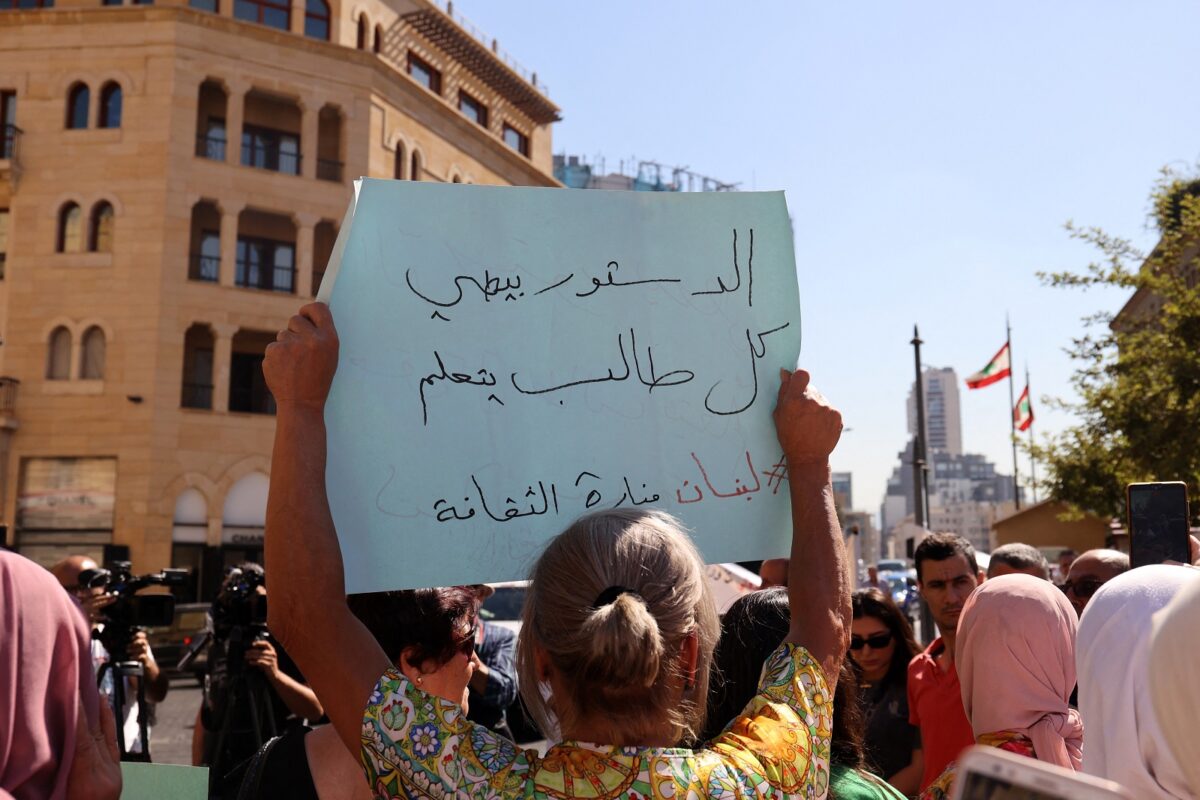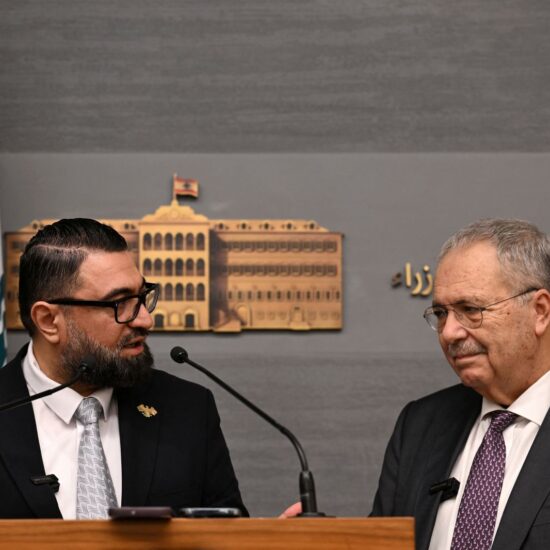
As Lebanon’s public schools remain unreliable due to ongoing strikes and lack of support, private ones are increasing their tuition fees by thousands of dollars, pushing parents into a corner with no viable options left for their children’s education
Many schools in Lebanon intend to increase their tuition fees by thousands of dollars for the next academic year, beginning in less than three months. In some cases, fees will be twice as high as those for the 2023-24 school year. These new rates are almost the same as those prior to the 2019 economic collapse, which drove a significant part of the population into poverty.
The sudden increase will pose a significant challenge to many who have faced financial deterioration since the crisis broke out, along with the current cost of living in the country. As the Lebanese economy became dollarized, educational institutions began adjusting their tuition fees back to pre-crisis levels.
“I am deeply frustrated and overwhelmed by the relentless rise in school fees. This year, our children’s tuition fees have skyrocketed, with additional charges in cash dollars that we simply cannot afford. The constant economic strain has already stretched our finances thin, and now education, something that should be a basic right is becoming an unattainable luxury,” Fadia Awad, a mother of two children who are both attending a private school, told NOW.
Private schools are demanding exorbitant amounts, and public schools remain unreliable due to ongoing strikes and lack of support. Parents feel as though they are being pushed into a corner with no viable options left for their children’s education.
Fees can start from 1,000 US dollars and can go up to 12,000 depending on the school and the grade year.
Setting a precedent
The problem with these schools, which mainly serve particular groups of Lebanese, is that they set a precedent for all private schools to raise their fees.
Caretaker Minister of Education Abbas Halabi responded to reports of schools planning to raise tuition fees by sending a letter to private schools on June 7, as reported by the state-run National News Agency (NNA). Halabi emphasized that according to Law 515/96, each school’s budget must be approved by the parents’ committee and reviewed by the relevant Ministry of Education department before fee adjustments. He stressed that any other procedure would constitute a violation of the law.
Meanwhile, the head of the Union of Parents and Guardians Committees questioned why they should debate the legality and foundations of school budgets when Lebanon operates under a “law of the jungle,” where everyone, including parents, the Ministry of Education, the government, and the House of Representatives, is complicit. Schools have become political and sectarian sanctuaries, immune from scrutiny.
She further asserted that asking why parents don’t protest is pointless when neither the Ministry of Education, its minister, the government, nor the deputies hold any school accountable.
Discussing the lack of justice and the interests of private education is, therefore, meaningless. Everyone is warned not to interfere with schools, treating them as untouchable.
Books and stationery also priced in dollars
School fees do not just burden parents, the cost of school supplies such as books, stationery, uniforms, and sports equipment is also being priced in dollars. This threatens the right to education, particularly considering the limited capacity of formal education to absorb students displaced from public schools. Unfortunately, this situation suggests a possible increase in high school dropout rates.
Reem Kassab, a private secondary school teacher told NOW: “Tuition fees have almost doubled compared to previous years, largely because of the additional expenses. The updated fees now include separate charges for electricity, bus fuel, and essential stationery items like chalk, paper, planners, and booklets which are all priced in dollars in markets.”
This puts parents in a tough spot: either reluctantly agree, facing financial strain as a consequence, or opt for public schools amidst rumors that the Minister of Education is considering dollarizing school fees there too.
As private schools move towards dollarizing tuition fees, secondary education associations in public schools push for strikes, and with the Ministry of Education and Higher Education lacking clear plans and solutions, Lebanon faces an impending surge in school dropouts. This potential crisis stands apart from previous ones, driven by current economic hardships and the conditions of both private and public schools, potentially resulting in significantly increased numbers of students abandoning their education.
Manal Hdaife, a school principal in a public school and a regional branch leader of the public primary schools teachers league in Lebanon, told NOW her perspective on this. “Previously, families experiencing financial hardships could consider options like shifting their children from private to public schools to ensure their education. However, this choice is no longer feasible as public schools are in a precarious state, uncertain if they can open this year, leaving parents with few, if any, alternatives,” she said.
There are significant and illegal increases in tuition fees for the next academic year, 2024-2025. While this may be understandable given that the prices of all commodities in Lebanon are tied to the dollar, it creates a significant challenge for those unable to obtain fresh dollars, leaving some students’ educational futures in jeopardy.
“Education in private schools has now become a luxury accessible only to the wealthy, and it appears that parents’ outcry will be particularly loud this time, as some schools have already begun notifying parents of the new tuition costs,” Imad Njeim, a social scientist and researcher who studies equality, social mobility and educational access, told NOW.
Addressing these challenges requires coordinated efforts from policymakers, educators, and communities to safeguard educational equity and ensure that all students have the opportunity to thrive despite economic hardships.
Rodayna Raydan is a Lebanese-British journalist. You can follow her on Twitter @Rodayna_462
The views in this story reflect those of the author alone and do not necessarily reflect the beliefs of NOW.








